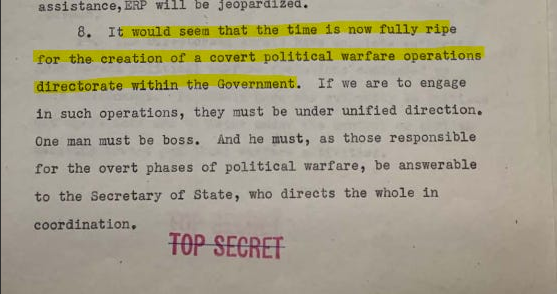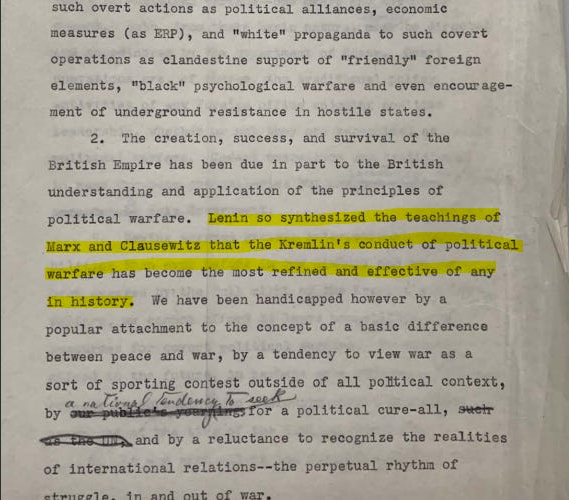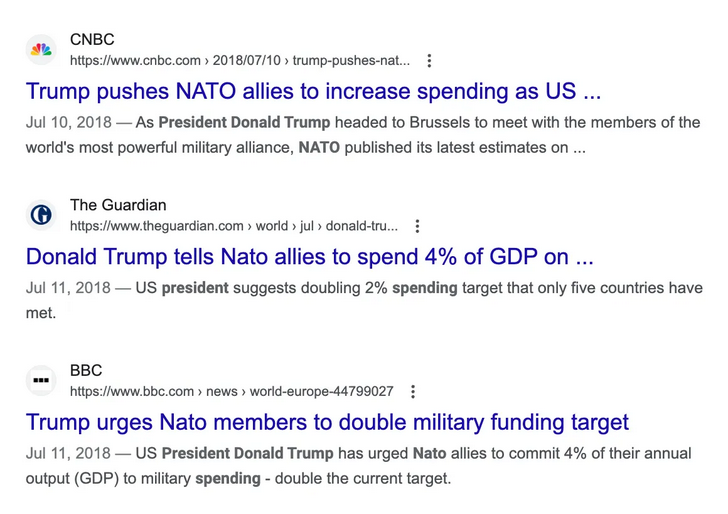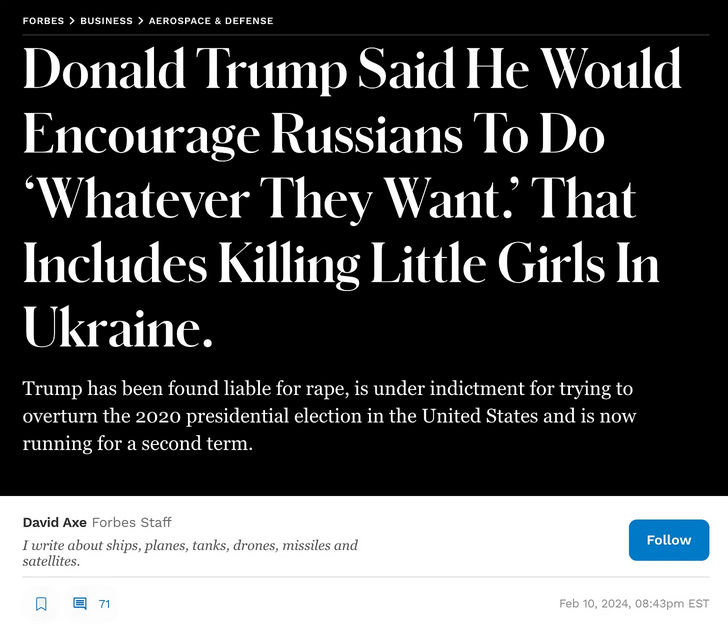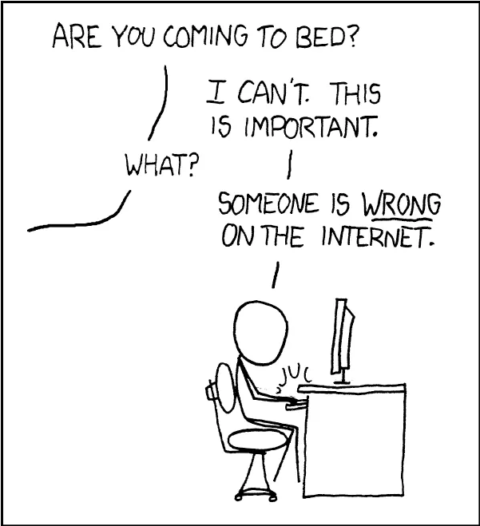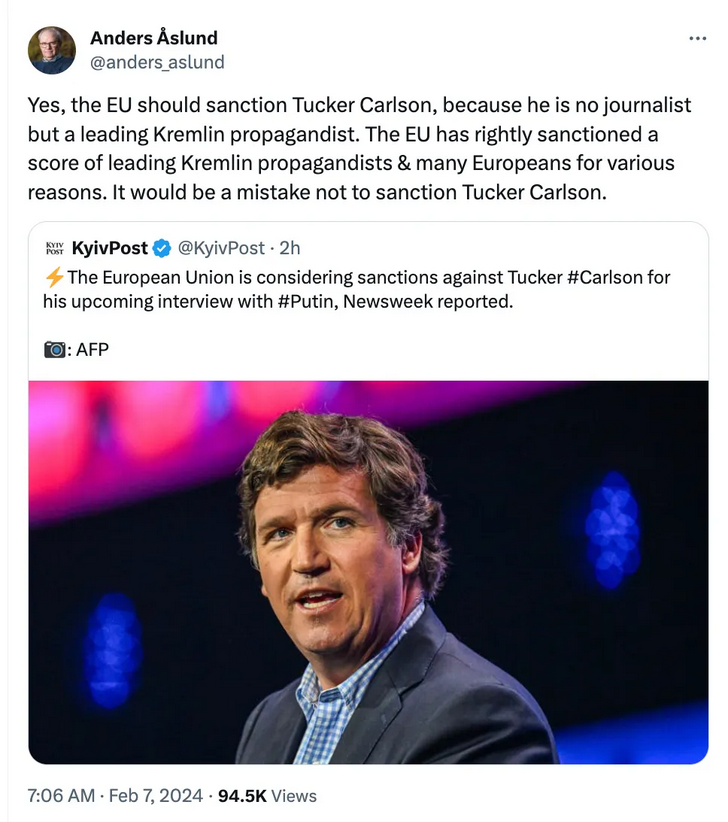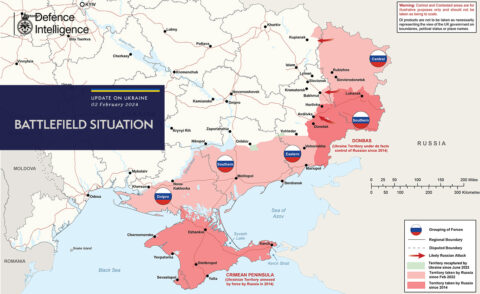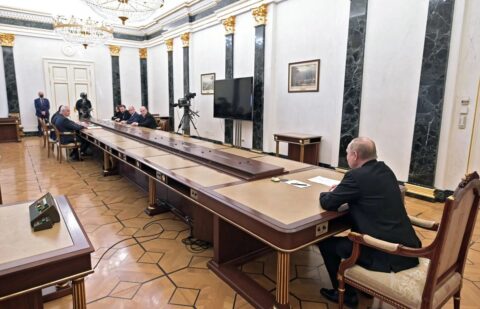The Tank Museum
Published Nov 17, 2023It’s not easy to hide a tank. But over the years, military commanders have developed ways to disguise, cover and conceal the presence of their tanks from the enemy. This video is about the “art of deception” – and how, since World War One, through World War Two and into the present day, the science of tank camouflage has evolved to meet the conditions and threats of the contemporary battlefield.
00:00 | Intro
01:38 | WWI
06:26 | WW2
13:42 | Post War
19:40 | Conclusion
(more…)
February 21, 2024
Can you make a tank disappear? The Evolution of Tank Camouflage
February 19, 2024
The CIA’s covert operations … as inspired by Vladimir Lenin
Along with most people who’ve been paying attention to history since the start of the Cold War, I hold the CIA in dubious regard. They seem to have been involved in so many underhanded escapades in countries around the world — certainly by reputation, if not in reality — that they stand almost in direct opposition to how most Americans liked to think of their country. Jon Miltimore thinks that among their inspirations was the founder of the Soviet Union himself:
I bring all of this up because I recently came across an old document of some significance that I’d never heard of before titled, “The Inauguration of Organized Political Warfare“.
It was authored by George Kennan, the State Department Policy Planning Director who’d go on to be a successful US diplomat, for the National Security Council (which governed the CIA), and the document explained how the US government had to mobilize national resources “for covert political warfare” to combat the Soviet Union.
Kennan was not, in my opinion, a bad man. He had good instincts and sound motives, at least compared to others in the US intelligence apparatus. He was an early opponent of the Vietnam War and later was one of the first diplomatic leaders to warn against the US policy of expanding NATO up to Russia’s doorstep, something he predicted would be “the most fateful error of American policy in the entire post-cold-war era”.
That said, it’s clear that Kennan was not appalled by the Soviet Union’s use of covert political warfare. He was impressed by it.
“Lenin so synthesized the teachings of Marx and Clausewitz that the Kremlin’s conduct of political warfare has become the most refined and effective of any in history,” Kennan wrote in the document.
We have been handicapped however by a popular attachment to the concept of a basic difference between peace and war, by a tendency to view war as a sort of sporting context outside of all political context, by a national tendency to seek for a political cure-all, and by a reluctance to recognize the realities of international relations — the perpetual rhythm of [struggle, in and out of war].
The document is fascinating because it appears to mark the genesis of the US government’s first formal steps into the world of political warfare — a well-documented history that includes toppling governments, assassinating world leaders, tipping elections, and torturing enemies.
All of these efforts, of course, initially targeted external parties and countries to serve “the national interest”.
This is no longer the case. The CIA, NSA, and other intelligence agencies no longer restrict their covert political warfare to foreign states, and I’m not talking about just Operation Mockingbird and other domestic propaganda efforts.
The CIA is clearly putting its thumb on the scales of US elections in ways that should terrify all Americans.
February 18, 2024
German Counterattack in Pomerania – WW2 – Week 286 – February 17, 1945
World War Two
Published 17 Feb 2024The Germans finally launch a counterattack into the Soviet flanks, but it does not go as well as was as hoped. The Siege of Budapest comes to an end, also not well for the Germans. The Soviets have now also surrounded Breslau. In Burma, the Allies cross the Irrawaddy River, in the Philippines the fight for Manila continues, and in the Pacific preparations are underway for an American invasion of Iwo Jima Island.
01:50 The fight for East Prussia
04:08 German counterattack in Poland
07:00 Breslau Surrounded
07:57 The Siege of Budapest
09:14 Operation 4th Term in Italy
10:07 Operation Veritable Continues
11:36 Allies cross the Irrawaddy
14:43 The Fight in the Philippines
17:52 Preparations for Iwo Jima
(more…)
February 15, 2024
Artillery! A WW2 Special
World War Two
Published 14 Feb 2024The modern artillery of the Great War was responsible for the vast majority of military deaths in that conflict, but how has artillery developed from that war to this one? Today we take a look at some of the artillery of WW2.
(more…)
Tune in for the propaganda, stay tuned for the epic meltdowns
Are you old enough to remember when “news” in the legacy media was, well, calmly presented factoids (accurate or not) that might get you upset, but the emotional content wasn’t heightened or enacted by the hairspray heads in front of the camera? Those days are long enough past that they might never have happened, as Chris Bray illustrates:
Spend a minute of your life looking at a chart that shows how much countries spend on their militaries as a percentage of GDP. The US spends about 3.5%, while Germany spends about 1.4%. For years, hawks have argued that the US should spend 4% of GDP on defense, in a well-known debate about reasonable funding for security. NATO members commit to a target of 2% or better, and many don’t make that goal. Donald Trump says he told the leaders of NATO countries that they should make or beat their military spending targets to ensure their own security, and as a negotiating ploy he poked at them and said that he wouldn’t bother to defend people who wouldn’t bother to pay for their own defense.
You can agree with his argument or disagree with his argument, and make whatever argument you want about the carefulness or recklessness of Trump’s rhetorical style, but none of this is obscure.
And so now we’re living through an ORANGE MAN LITERALLY HITLER CRISIS, as Orange Satan Drumpf tells the Putin Devil to absolutely MURDER all the Europeans and the world teeters in agony at the very brink of a harvest of slaughter. Here, let Forbes just give you the news, straight and factual and to-the-point:
THE MEAN MAN SAYING FOR THE PUTIN DEVIL TO MURDER ALL THE LITTLE BABIES professional journalists calmly explain, absolutely biting through the rubber nipple on their pacifiers. Sackcloth, ashes, endlessly refillable SSRI prescription: journalist starter kit.
In the car a few minutes ago, I turned on the radio mid-interview to hear a hysterical NPR anchor begging a European pundit to agree that Trump is a vicious monster, and the European — I missed his name — sighed and said that look, this is a debate that we’ve been having for a while, it’s a pretty normal discussion. BUT DON’T YOU THINK HE’S AN ORANGE MURDER DEVIL!?!?!? Then they played an important clip of Slow Joe Biden slurring and fake-shouting about Trump’s un-American cruelty, sounding almost as angry as he was when he talked about how many actual chips they put in the potato chip bags. This is why I listen to NPR in short bursts, like a gun run from an A-10. Brrrrrrrrrt, and off.
But what’s inescapable about this extremely dull moment, yet again, is that an allegedly elite layer of political, academic, and media figures are taking something routine and willfully inflating it into a five-alarm global crisis. It … must be a day ending in -y? Nothing is ever bad, or disagreeable, or arguable; every event is The Absolute Worst. Every development must be discussed in hyperemotional terms; every objectionable act is devastating, terrifying, destructive, ruinous, treasonous, unforgivable. No one disagrees with us; rather, they are ENEMIES OF EVERYTHING WE STAND FOR!!!!!
February 14, 2024
Soviet World War Two Swords? The M1927 Shashka
Cossack forces have long been a key cavalry element of the Russian military, and this did not change during the Soviet era. The Cossacks had their own rather distinctive style of sword, the shashka, and the Red Army maintained the tradition of issuing them to Cossack cavalry troopers. In 1927, a new pattern was adopted, and it was produced and issued from 1928 until 1946. The shashka has a slightly curved, single-edged blade and no handguard. The model 1927 military type was initially made with a rather decorative pommel, but this was simplified to just a plain 5-pointed star as German advances into Russia really stressed Soviet industrial production. However, production and issue of the shashka continued uninterrupted throughout the war.
Originally there were separate trooper and officer versions of the model 1927, with the trooper version including the ability to stow the trooper’s Mosin-Nagant rifle bayonet on the side of the shaskha scabbard. As cavalry, the Cossacks were not expected to carry their rifles with bayonets fixed, and this served in lieu of a bayonet sheath. By 1944 this feature was omitted, as the M91/30 was replaced by the M38 and M44 carbines and submachine guns, which did not use bayonets.
The decorations returned to the M1927 shashka in 1945, with a series made for the Victory Day parade celebrating the defeat of Germany. Today’s example is one of these, and in beautiful condition.
February 12, 2024
Yalta, When Stalin Split the World – a WW2 Special
World War Two
Published 11 February 2024Indy and Sparty take you through the negotiations at Yalta as The Big Three thrash out the shape of the postwar world. As the splits between East and West continue to deepen, who will come out on top?
(more…)
February 11, 2024
The Battle of Manila Begins – WW2 – Week 285 – February 10, 1945
World War Two
Published 10 Feb 2024The American advance on Luzon has reached the Philippine capital, and it looks like they have a real fight on their hands with the Japanese there. There are supposed to be two new Allied operations starting in Western Europe, but one is delayed by flooding. The Allies do manage to eliminate the Colmar Pocket in the west, though. On the Eastern Front, there are new Soviet attacks in Pomerania and East Prussia, as well as out of the Steinau Bridgehead to the south, and in Budapest, it looks like the Soviet siege might soon end in victory.
(more…)
February 10, 2024
The War Goals to End WW2 in 1945 – a WW2 Special
World War Two
Published Feb 8, 2024While World War Two looks like it is about to end, the belligerent powers have vastly different goals for that end. Differences that may or may not prolong the war, will decide the survival of tens of millions of people, and the future fate of all of Humanity.
(more…)
“Ukraine is running out of soldiers to man the front”
In the second part of his review of the situation in the Russo-Ukrainian War, Niccolo Soldo discusses why the plight of Ukraine’s military is getting worse, not better:
Since the previous entry was published, several key developments continue to make the outlook for Ukraine even gloomier than it already was then. The Ukrainian-held city of Avdiivka is now falling to Russian forces. This city is right next to Donetsk, the largest city in the Donbass. It is from Avdiivka that the Ukrainian Armed Forces (UAF) have been shelling that city for almost a decade now. It is considered by many to be the location with the strongest fortifications along the entire front line. Its capture by the Russians would be a significant victory, not just because of the size of the battle, but especially because it would spare the city of Donetsk from any future artillery barrages from the Ukrainian side.
Since the last entry, the ongoing fight between President Zelensky and his top general, Valeri Zaluzhny, has broken out into the open. Zelensky has indicated that he will be replacing Zaluzhny (and others) in order to “shake up” Ukraine’s war effort, a move that the general refuses to accept. The two Z’s do not see eye-to-eye, with observers informing us that Zaluzhny has called for the UAF to pull out of Avdiivka in order to buy time and not lose more men and arms in defending a city that they would lose in due time. [NR: Zelensky announced that Oleksandr Syrsky has replaced Zaluzhny on February 9th.]
Making matters even worse for the Ukrainians, the US Senate failed to agree to send more money to Kiev to help them in their fight against the Russians. Ukrainian officials told the Guardian that the failure in the US Senate “… will have real consequences in terms of lives on the battlefield and Kyiv’s ability to hold off Russian forces on the frontline”. US Aid For Ukraine President Yuriy Boyechko sounded an even gloomier note:
Everyone was hoping that US won’t let us down, and now we find ourselves at a very difficult place. People are losing hope little by little. We don’t have time for this because we see what’s going on at the front. The more time we give for the Russians to build up their stockpiles, even if the aid is going to show up it might be too little too late.
Newly-elected Polish Premier Donald Tusk criticized Senate Republicans by invoking the memory of Ronald Reagan:
And not to be outdone, Politico is blaming who else but Donald Trump.
The EU did finally manage to convince Hungary to agree to a new 50 Billion EUR package for Ukraine, but European leaders all agree that it is “nowhere near enough”, and requires the USA to chip in just as much as a minimum to sustain the war effort. This package is to be spread out until 2027, but Ukraine faces a funding shortfall of 40 Billion USD this year alone! From the linked article:
“Everyone realizes that €50 billion is not enough,” said Johan Van Overtveldt, a Belgian conservative who chairs the European Parliament’s Budget Committee. “Europe realizes that it needs to step up its efforts.” And by that, he means finding money from elsewhere.
World Bank estimates put Ukraine’s long-term needs for reconstruction at $411 billion.
Money is one thing (and a very, very important thing at that), but all the money in the world doesn’t address the elephant in the room: Ukraine is running out of soldiers to man the front.
QotD: When Manchuria became Manchukuo
Back around the turn of the 20th century, the Russians decided to build a railroad across Siberia, the better to (among other things) supply their spiffy new naval base at Port Arthur, on the strategic Liaodong Peninsula (linking up with their Chinese Eastern Railway). This pissed off the Japanese, who claimed the Peninsula by right of conquest in the First Sino-Japanese War. Unpleasantness ensued.
Further unpleasantness ensued in the wake of World War I, when both Imperial Russia and Republican China collapsed. The Japanese had a big railroad project of their own going in the Kwantung Leased Territory, which was threatened by the chaos. Moreover, the big Japanese railroad project had grown — as Japanese industrial concerns tend to do — into a ginormous, all-encompassing combine known as Mantetsu.
So far, so recondite, I suppose, but stop me if this part sounds familiar: Mantetsu was so big, and so shady, that it was all but impossible to tell where “the guys running Mantetsu” ended and “the Japanese government” began. And it gets better: Thanks to the Japanese Empire’s distinctive (to put it mildly, and kindly) administrative structure, it was equally hard to tell where “the Japanese government” ended and “the Japanese military” began. Even better — by which I mean much, much worse, but again feel free to stop me when this sounds familiar — “the Japanese military” was itself composed of several wildly different, mutually hostile chains of command, all competing with each other for political power, economic access, and glory. Best of all — by which, again, I mean worst — since Mantetsu was so big, and so wired-in to every level of the Japanese government, it basically got its own army, which was effectively separate even from the Army High Command back in Tokyo.
Here again, the granular details are insanely complex, and I’m not qualified to walk you through them, but the upshot is: Thanks to all of the above, plus the active enmity of the rapidly-rearming Soviet Union and the rapidly-accelerating chaos of the Warlord Period in China, Japan’s foreign policy ended up being dictated by the Kwantung Army, with almost no reference to even the High Command, let alone the civilian politicians, back in Tokyo. A particular warlord giving the Mantetsu Board of Directors — or, you know, whoever — grief? No problem — boom! Oh, that didn’t solve the problem, and now the politicians are dragging their feet? Might as well blow up a different part of your own railway, seize a whole bunch of territory on that flimsy pretext, and set up a puppet government to give you cover …
I don’t expect y’all to follow all the links right away, so trust me on this: Nobody involved in any of that stuff ranked higher than colonel. Indeed, the guy most “responsible” — if that’s really the word — for all of this stuff was a staff pogue, also a colonel, named Kanji Ishiwara. He and another staff pogue, Seishiro Itagaki, who was head of the Kwantung Army’s intelligence section, orchestrated the Japanese invasion of China, and while it’s oversimplifying things a bit too much to say those two clowns started World War II in the Pacific, I’m not stopping you from saying it.
From there, events took on a logic of their own. The rest of the Army was soon committed to the war in North China, which rapidly became the war in all the rest of China. The Navy, not wanting to let the Army hog all the glory, had gotten in on the war a few years prior to the Marco Polo Bridge, and soon enough they were causing all kinds of international grief on their own account. Put simply, but not unfairly, you had the Navy chasing the Army, and the Army chasing itself, all across China, with the civilian politicians lagging way behind in the rear, desperately trying to catch up, or even just figure out what the hell was going on …
Severian, “Lessons from Manchuria”, Rotten Chestnuts, 2021-04-21.
February 8, 2024
February 5, 2024
“Why can’t these Russians see how they’re being oppressed?”
As the war in Ukraine has gone on, western media seem to have completely lost track of what ordinary Russians think about their government, replacing reality with a westernized imaginarium of Russia somehow being little more than a mirror of western progressive opinion:
For the average western normie, Russians are suffering under a brutal and vicious dictatorship, and cannot wait for the day that Putin loses power and western liberal democracy becomes the law of the land.
None of you reading this are normies, and all of you know full well that the overwhelming majority of Russians are not buying what western media and think tanks are selling. They have a unique (and foreign) history and culture that has at times moved towards Europe, but they have always managed to stand apart. This informs how Russians view their country and how they deal with the rulers that rule over them.
Many had hoped that the War in Ukraine would finally see Russians rise up against their own government and remove it from power. Those hopes were always misplaced and naive. Western journalists have long been blinded by their own false assumptions regarding the “superiority of western liberal democracy” and Russian sentiment. “Why can’t these Russians see how they’re being oppressed?”, is the generalized refrain. Harper’s Magazine sent two journalists to explore Russia along the Volga River, and what they found was a culture far removed from the West, and very proud of its own. It’s a long piece, so here are some highlights:
Piotrovsky, who is mild-mannered and cerebral, and who wore his jacket loosely over hunched shoulders, seemed to have become a warrior. “Russia is many people, but one nation,” he asserted. “Russia along the Volga was able to incorporate everyone. Islam is just as much a religion of Russian tradition and identity as is Christian Orthodoxy. In Europe, in America, you speak of nothing but multiculturalism, but your cities are bursting with hate. For us, it didn’t take much to include everyone, because we’re an imperial civilization.” Then he grew more animated. “Look at the Hermitage!” he said, opening his arms to the room around us, widening his eyes. “It’s the encyclopedia of world culture, but it’s written in Russian because it’s our interpretation of world history. It may be arrogant, but that’s what we are.”
On renewed trade with Asia:
Sergeeva took me to see the Jewish, Armenian, and Iranian neighborhoods of Astrakhan. An exhibition of photographs highlighting the civilian volunteers supporting the military was being set up outside of a park. At sunset, the elegant riverfront was swarmed with families and groups of young people talking and laughing in hushed tones. Couples sat on railings eating watermelon while food stalls projected multicolored lights on the Volga. There was a fin de siècle quality to the atmosphere, curls of smoke emanating from shashlik grills, a warm breeze delivering the lament of a distant violin. No military uniforms in sight.
The café façades and the wrought-iron balconies reminded me of New Orleans. Sergeeva pointed out the renovations along the canal that runs through the old town, indicating the nineteenth-century wooden villas that will soon become hotels and luxury homes. “They seemed destined to crumble,” she said. “But now that money is going around, Astrakhan is once again the gateway to European Russia, Central Asia, and India. This is how it is for now. Later, we’ll see.“
and
In Astrakhan, it was rumored that the Iranians had invested billions in the development of the Caspian-Volga-Don corridor. There was talk of trafficking agricultural products and oil, but also turbines, spare mechanical parts, medicine, and nuclear components. I couldn’t verify this, but it was clear that Astrakhan is central to the anti-Western economic bloc’s efforts to turn east.
The general opinion in February of 2022 was that the Russians would easily seize much of Ukraine, but that they would pay a very large economic price, possibly the destruction of their entire economy. This was a safe bet, and it was totally wrong.
Import substitution:
“The Russians are reacting to the sanctions in an extraordinary way, even with a weak ruble and the inevitable inflation. The prices of essential goods have held steady. And now we’re consuming better and healthier products than before the war, even exceptional cheeses.”
I had never imagined that the rise of hyperlocal food would be one of the recurring themes of this trip. But it appears that the Western sanctions and war economy have intensified a traditional Russian gastronomy movement. Western products had piqued the palates of average urban Russians, and local producers were trying to fill their vacuum, proudly offering Russian-made Camembert and prosciutto, as if to provide some material evidence of Russkiy Mir, Putin’s ideology of Russian supremacy. As I dined along the Volga, menus often specified the farms from which ingredients had been sourced. Restaurants served svekolnik and okroshka, simple cold summer soups, exalting the quality of local radishes grown without Western fertilizers.
An ethnic Tatar foodstuffs producer from Kazan, Tatarstan on the sanctions regime leveled against Russia:
Since then, the company’s net worth has become the stuff of legend. But Kazankov, too, is a great supporter of Western sanctions: “They’re an incredible developmental tool for Russia,” he told me. “The West should have imposed them back in the Nineties. We’d be the engine of the world by now. Too bad.” For him, the sanctions are pure adrenaline, and to prove it he added that his company has copied Italian, German, and Israeli “production means” to the letter: “We doubled processing in one year and we supply almost a thousand supermarkets in all of Russia.” Ivan believes that his “full-circle communist company” is the ideal model for “rebuilding a new Soviet Union with healthy local food from our lands.”
On the loss of vacationing in Europe:
Was this fatalism? Indifference? Or arrogance, as Piotrovsky had implied back at the Hermitage? I struggled to find room in hotels or on ferries, all of which were overflowing with tourists forced to give up on the Mediterranean and make do with the Volga. Take Tatiana, the middle-aged manager of a supermarket chain. When I met her on a ferry in Yaroslavl, she wore a Panama hat, Gucci sunglasses, and capri sandals; she was heading downstream, to the same dacha where she had spent her summers as a girl. “I’ve had a boat docked in Mykonos for three years — who knows when I’ll see it again,” she told me. “I’m getting to know my river again. I’m running into friends I haven’t seen in thirty years. An interesting vacation.” I told her she looked a bit sad and resigned. “Russians have been sad and resigned for thousands of years,” she replied. “It’s how we stay resilient. I’m against this war, but I can’t do anything but wait, like everyone else. They manipulate us with artificial ideas. Garbage. But the West has been humiliating us for too long. Don’t we also have a right to be who we want to be without feeling like barbarians?“
February 4, 2024
Is the Red Army too fast for its own good? – WW2 – Week 284 – February 3, 1945
World War Two
Published 3 Feb 2024Soviet forces have reached the old German border in force, however, logistical issues and a strong enemy presence possibly threatening their flanks means that a drive on Berlin may not be doable just now. Heinrich Himmler is in charge of the new Army Group to defend the Reich, and he has a host of problems. On the Western Front, the Allies finally eliminated the Colmar Pocket, and in the Philippines, the American advance reaches Manila, and the battle for the city is about to begin.
(more…)


